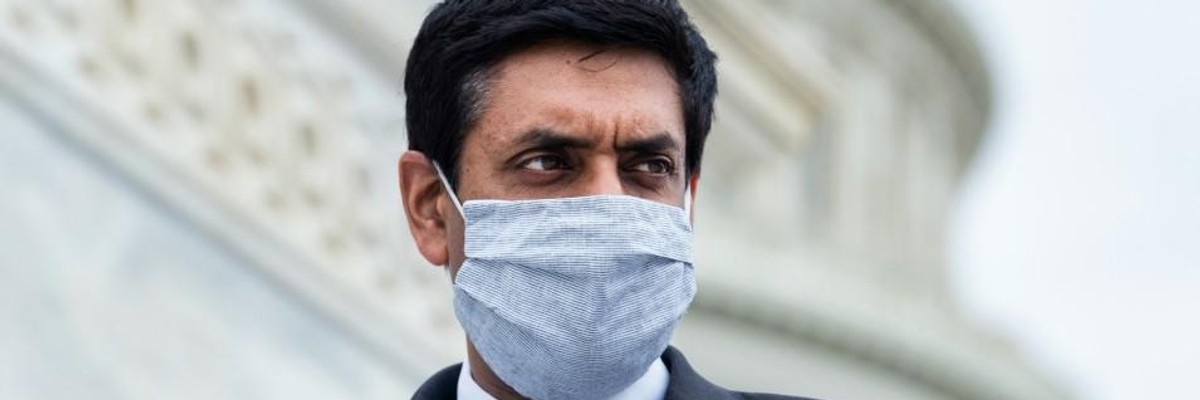Progressive Congressman Ro Khanna on Wednesday cautioned President Joe Biden and the Democratic leadership against further restricting eligibility for any future round of direct coronavirus relief payments, warning that excluding many struggling middle-class Americans from checks would be misguided and politically disastrous.
"This is not just bad economics, but terrible politics," Khanna (D-Calif.) tweeted in response to a new analysis that argues providing stimulus checks only to households that earn less than $75,000 a year would be better for families and the overall economy, given that higher earners are more likely to save the money or use it to pay off debts.
Khanna contended that such an approach would backfire, fueling the widespread view that the federal government doesn't care about the middle class.
"Have we learned nothing?" the California Democrat asked.
The two previous rounds of direct payments phased out for higher earners, with the checks gradually shrinking in size for individuals with annual incomes of more than $75,000 and couples with combined incomes of more than $150,000.
Under the eligibility structure proposed by the House-passed CARES Act, married couples with a combined annual income of $300,000 and two or more children would have been eligible for some money, but the vast majority of the benefits would have gone to lower- and middle-income households.
While the White House has not yet suggested specific eligibility details for its proposed $1,400 payments, Biden on Monday said he would be willing to entertain a lower income cutoff after a bipartisan group of lawmakers led by Sen. Susan Collins (R-Maine), Joe Manchin (D-W.Va.), and others raised concerns that the new round of checks would not be sufficiently "targeted."
"I proposed that because it was bipartisan, I thought it would increase the prospects of passage, the additional $1,400 in direct cash payments to folks," Biden said during a White House event Monday. "Well, there's legitimate reasons for people to say: 'Do you have the lines drawn the exact right way? Should it go to anybody making X number of dollars or Y?' I'm open to negotiate those things."
Progressives, already frustrated that Biden is calling for $1,400 checks instead of the promised $2,000, were quick to reject any additional means testing.
"The $2,000 checks initiative does not have to go down the same way the public option went down. The president and congressional Democrats do not have to do what weak-kneed, wimpy Democrats of the past have so often done," arguedThe Daily Poster's David Sirota. "They do not have to negotiate against themselves, word-parse their way out of campaign pledges and delude themselves into thinking that Republicans are good-faith legislative partners."
"They could instead try to use their election mandate--and the weakened state of the GOP--to demand full survival checks," Sirota added, "rather than pretending that bad-faith Republican senators have any standing to make policy arguments."

